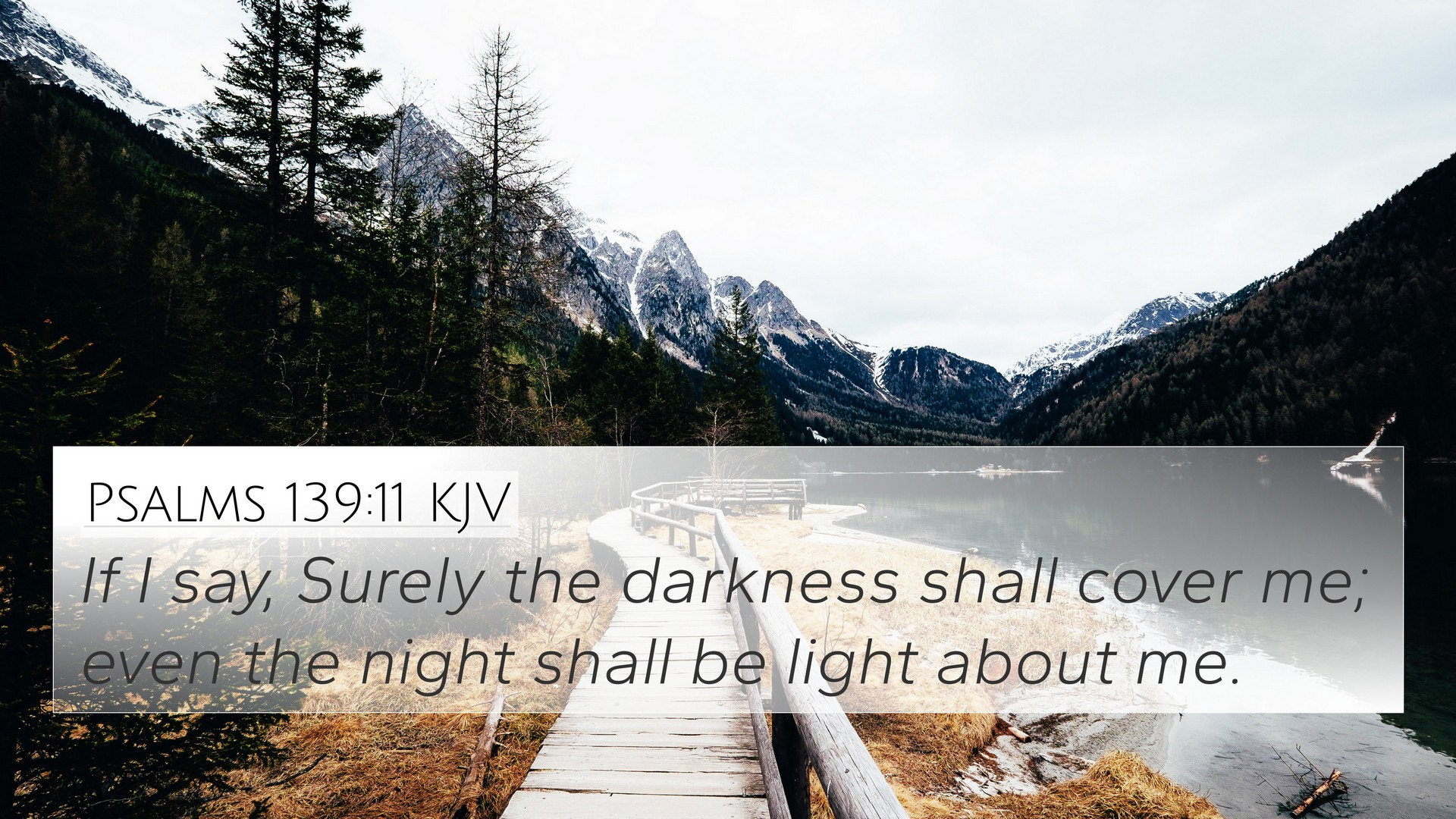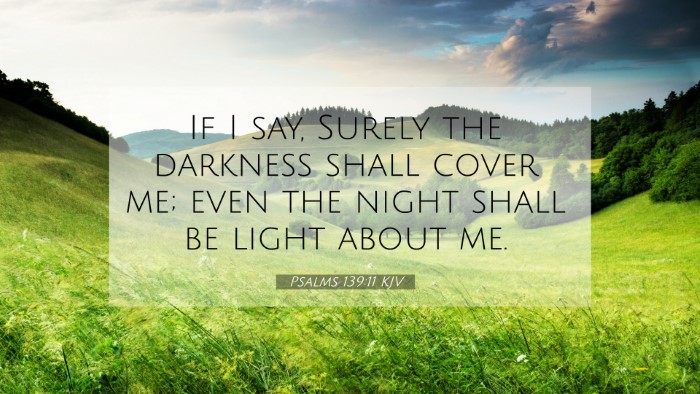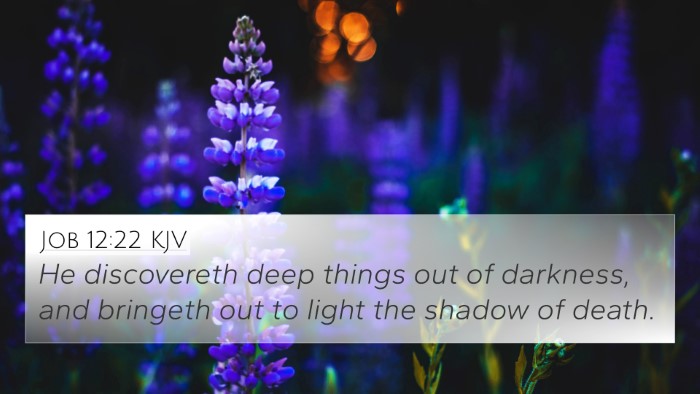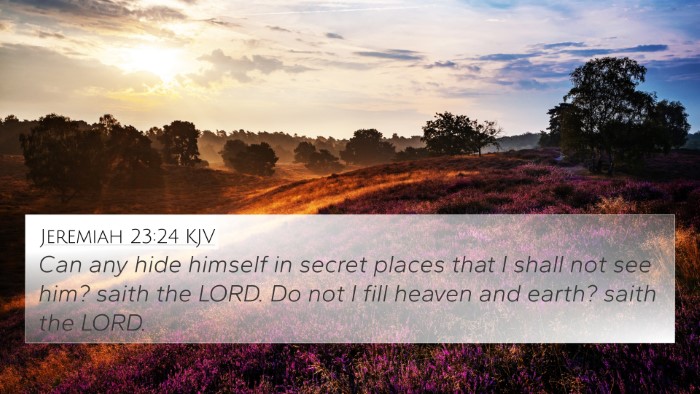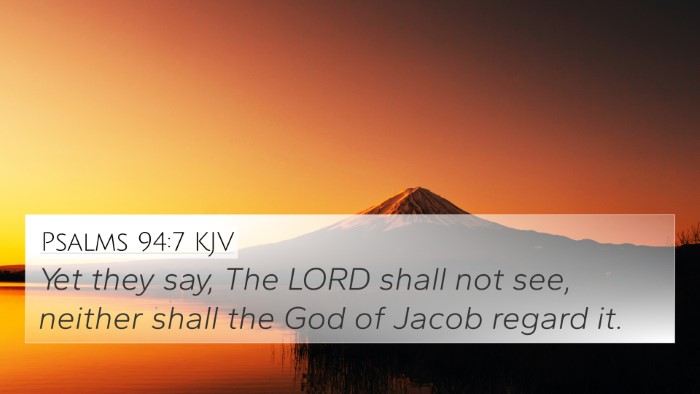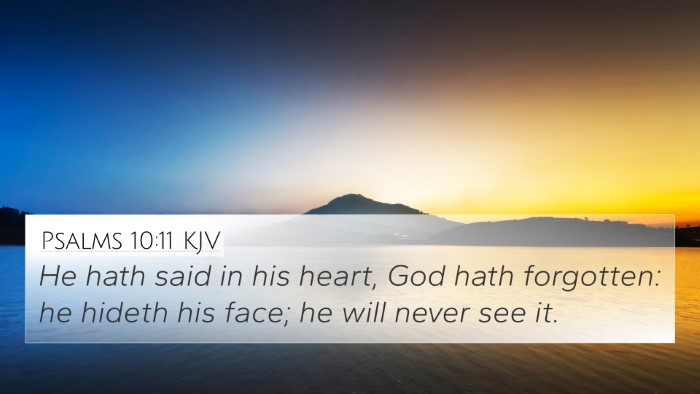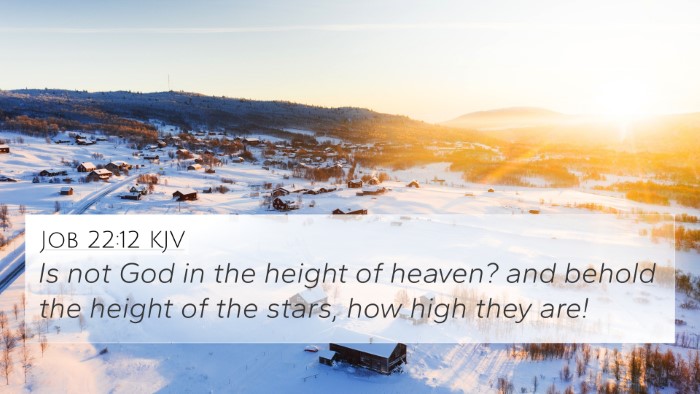Psalms 139:11 - Summary and Interpretation
Psalms 139:11 states: "If I say, Surely the darkness shall cover me; even the night shall be light about me." This verse offers profound insights into the omnipresence and omniscience of God, emphasizing that there is no escape from His presence, even in the darkest situations.
Meaning and Insights
This verse reflects a deep understanding of God's nature. In the context of the Psalm, David expresses both a sense of despair and an assurance of God's constant presence. Public domain commentaries provide rich interpretations of this passage:
- Matthew Henry: Henry highlights how David, in his reflective state, acknowledges God's omnipresence. He points out that even if one attempts to hide in darkness, God’s light still shines. This conveys the idea that darkness cannot obscure God's presence or knowledge, signifying that no matter how desperate a situation may seem, God is always nearby.
- Albert Barnes: Barnes focuses on the metaphorical use of "darkness" and "night." He explains that darkness symbolizes trouble or despair, yet the light of God cannot be hidden. Darkness is not merely physical; it also represents spiritual and emotional turmoil. Barnes emphasizes that in our darkest hours, God's light can guide us and offer clarity.
- Adam Clarke: Clarke points out the contradiction of saying that darkness can envelop one and then finding that the night itself can become as light. He elaborates on the philosophical and spiritual meaning, asserting that God's knowledge encompasses all aspects of life, and His presence provides comfort and reassurance. He sees this verse as an encouragement that God transcends all human experiences, including confusion and fear.
Cross-References
This verse can be richly connected to several other passages throughout the Bible, reinforcing the theme of God's omnipresence and the contrast between darkness and light:
- Job 34:22: "There is no darkness, nor shadow of death, where the workers of iniquity may hide themselves." This verse supports the idea that no one can escape God’s watchful eye.
- Isaiah 50:10: "Who is among you that feareth the Lord, that obeyeth the voice of his servant, that walketh in darkness, and hath no light? Let him trust in the name of the Lord, and stay upon his God." This reinforces faith in God even amidst darkness.
- John 1:5: "And the light shineth in darkness; and the darkness comprehended it not." This highlights the power of Christ's light over darkness.
- 1 John 1:5: "This then is the message which we have heard of him, and declare unto you, that God is light, and in him is no darkness at all." This passage affirms God's pure and enlightening nature.
- Romans 8:38-39: "For I am persuaded, that neither death, nor life, nor angels, nor principalities, nor powers, nor things present, nor things to come, nor height, nor depth, nor any other creature, shall be able to separate us from the love of God, which is in Christ Jesus our Lord." This echoes the idea that nothing can separate us from God, reinforcing the message of His unyielding presence.
- Psalm 23:4: "Yea, though I walk through the valley of the shadow of death, I will fear no evil: for thou art with me; thy rod and thy staff they comfort me." A comforting reminder of God’s closeness in dark times.
- Matthew 5:14: "Ye are the light of the world. A city that is set on a hill cannot be hid." This speaks to how believers can also reflect God's light to the world.
- Acts 26:18: "To open their eyes, and to turn them from darkness to light, and from the power of Satan unto God." This illustrates the transition from darkness to divine enlightenment through faith.
- Revelation 21:23: "And the city had no need of the sun, neither of the moon, to shine in it: for the glory of God did lighten it, and the Lamb is the light thereof." This depicts the eternal light of God and the Lamb, emphasizing the ultimate defeat of darkness.
Connection with Other Scripture Themes
The overarching theme of Psalm 139:11 connects intricately with various Biblical themes, demonstrating the continuity and interplay of scripture. By utilizing tools for Bible cross-referencing, one can dig deeper into the rich theological implications and discover:
- The nature of God as light and protector.
- How darkness signifies sin and separation from God.
- Belief and trust in God as a source of comfort.
- The transformative journey from despair to hope through faith.
- The role of believers as bearers of divine light in a dark world.
Conclusion
In summary, Psalm 139:11 serves as a potent reminder of God’s omnipresence, reassuring believers that even in the bleakest moments, God's light and guidance remain accessible. By exploring this verse through cross-references, the depth of its message is enriched, drawing connections to the broader narrative of scripture and enhancing our understanding of God's nature. This will assist those seeking to discern the intricacies of Biblical texts and enrich their spiritual journey through detailed analysis of related scriptures.
